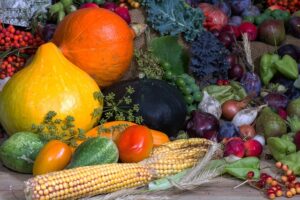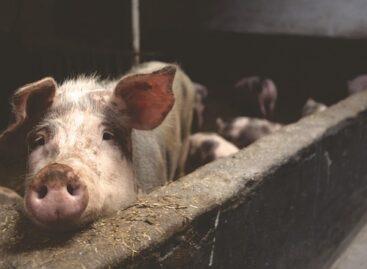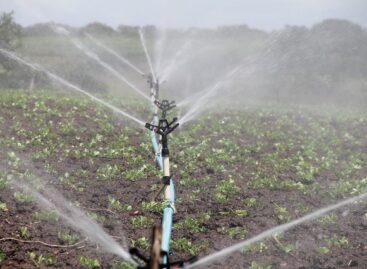Strengthening producer organizations is the key to the future of the horticulture sector
Producer organizations have an unavoidable role in terms of the future of the domestic horticulture sector – it was said at the conference organized by the National Chamber of Agricultural Economics (NAK) in cooperation with FruitVeB.

(Photo: Pixabay)
With proper organization, the market opportunities can be favorable for both domestic and foreign markets. However, in order for the sector to be able to benefit from this, strong, well-organized, democratic producer cooperation is necessary. – The key issue for the future of the horticultural industry is to increase organization and efficiency. Thanks to the development programs, the support system and innovation, we have been taking steps to improve the organization for years, but there is still plenty to do in this area. After all, twenty years after our entry into the European Union, we have not reached the EU’s average integration level – said Viktor Balázs, NAK’s national vice-president responsible for environmental sustainability and innovation, at the event organized by the chamber, “Producer organizations in the fruit and vegetable sector – Presentation of European and domestic good practices” at the international conference. In his greeting, he drew attention to the fact that the current level of organization reflects the performance of the sector as a whole. Such concentration has taken place and is taking place on the domestic retail procurement side and on the export markets, with which individual actors can hardly or not at all gain a good negotiating position. – It is important to move the sector out of this stalemate and steer it in a direction of development that is predestined by the past of our horticultural production. Cooperation with partner organizations and common thinking are essential for this – the vice-president emphasized. The NAK – together with its partner organizations – considers it an important mission to improve the perception of producer cooperation and strengthen the trust of producers. This is also extremely important because the EU wants to implement the support of the fruit and vegetable sector through producer organizations, by financing their operational program. The available support resources can also be used to their best effect if the level of organization in the sector increases.
Elli Tsiforou, Secretary General of Copa-Cogeca (the largest European representation of producers and cooperatives), greeted the participants in a video message
He highlighted: cooperatives are of fundamental importance for European agriculture; they also have a prominent role in sustainability, as well as from an economic, social and social point of view. – Further collaborations should be encouraged. “Organization is a tool that can help answer challenges and implement the EU’s sustainability policies,” he emphasized. He drew attention to the publication prepared by Copa-Cogeca, which presents the basic principles of the operation of agricultural cooperatives operating in the EU and their role in each sub-sector.
There are currently 49 producer organizations operating in the fruit and vegetable sector in Hungary, of which 41 have operational programs
The size of the area cultivated by the cooperatives is around 29,300 hectares, the amount of the crop sold was 462,000 tons in 2023, and the value of the traded goods reached HUF 116 billion. Márton Bittsánszky, head of department at the Ministry of Agriculture, spoke about this. As he emphasized, it is important to create such a framework for producer organizations that the cooperative form of existence is attractive to farmers again. Sándor Nagypéter, vice-president of the Hungarian Fruit and Vegetable Association (FruitVeB), president and managing director of the Gardeners’ Cooperative of the Southern Plains, indicated that in the last few years a change has begun in terms of the operation of domestic producer organizations, and this trend should be accelerated in the period ahead. An important pillar of this can be the promotion of international cooperation. – It is important that producer organizations unite not only at home, but also at the international level. Together we are stronger, we can protect European production and compete with global trade – stressed Sándor Nagypéter.
According to Péter Kelemen, the executive director of FruitVeB, the role of producer organizations is unavoidable in terms of the future of the domestic horticulture industry.
Producer organizations have endless market opportunities. It is very important to improve the domestic self-sufficiency level and develop exports. The latter cannot be provided by the domestic industry without organization. In order to overcome these challenges, even stronger market cooperation and the creation of new producer organizations are necessary, the executive pointed out. The generational change can be an important milestone for the future of producer organizations. While the older farmers – due to historical reasons, the initial, not completely producer-friendly experiences after the forced milk hardening and the regime change – in many cases stay away from being a cooperative, the younger ones understand the advantages of cooperation and the cooperative form.
Dr. Anita Kozak, NAK’s leading horticultural expert, presented the results of the comprehensive research conducted by the chamber in 2023 on the subject
According to this, when our country joined the European Union, a number of producer organizations were formed, but after that, a process of concentration and purification began. In addition to the declining number of members and production area in the past decade, the share of TÉSZs in the sector’s gross production value has barely changed, hovering around 20%. And from 2021, the level of integration seems to shift in a negative direction, as the share of TÉSZs decreases in addition to the stagnation of the sector.
NAK organized the TÉSZ conference for the first time, the purpose of which is to review the past period from the perspective of producer organizations
In addition, the event had an undisguised intention to present good practices to producers. In addition to the experiences of Hungarian producer organizations, the participants of the conference were also able to learn about the French and Polish cooperative models. Claire Martin, representing the French producer cooperations, presented the French model, which is based on grassroots, stable, resistant cooperatives, where the goal is not to maximize profit, but to assert producer interests in terms of sales and the provision of various services. He explained that the cooperative form is the most suitable for producer organizations and their producer members. Agnieszka Maliszewska, vice president of Copa-Cogeca, gave a presentation on Polish producer cooperation. He pointed out that the cooperative is a very popular form of organization in Poland, which is not only present in the fruit and vegetable sector, it also plays a significant role in the dairy industry, but also works successfully in the construction industry, for example. He drew attention to the fact that growing should be made attractive to young people, as gardening is primarily not a hobby, but a business activity. In the cooperative, they are not left to their own devices, and they also receive help to solve their production-related problems. The Chamber of Agriculture is committed to increasing the organization of producers, so next year it will launch a series of professional events aimed at restoring producer confidence in cooperatives.
NAK
Related news
Precision farming makes the world more livable and better
🎧 Hallgasd a cikket: Lejátszás Szünet Folytatás Leállítás Nyelv: Auto…
Read more >The producer price of domestic slaughter pigs decreased by more than a quarter in one year
🎧 Hallgasd a cikket: Lejátszás Szünet Folytatás Leállítás Nyelv: Auto…
Read more >Related news
Atmedia adds BBC Earth to its international portfolio in Hungary
🎧 Hallgasd a cikket: Lejátszás Szünet Folytatás Leállítás Nyelv: Auto…
Read more >








